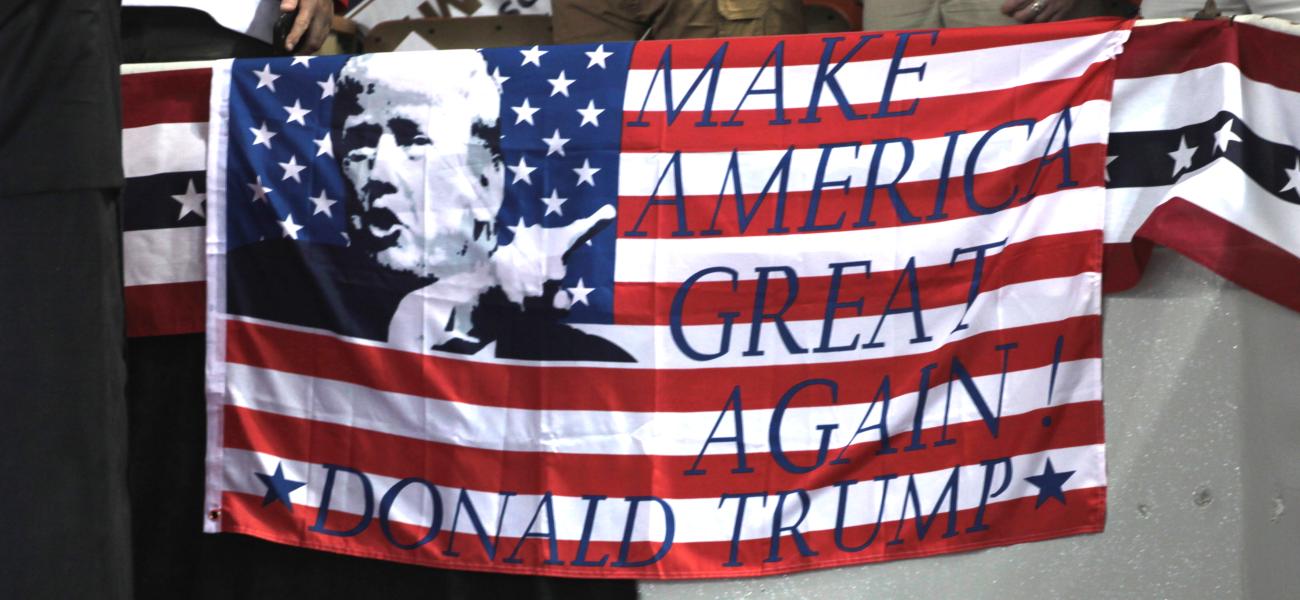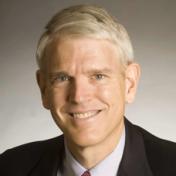
Survey: What Will a Trump Presidency Mean for US-Russia Relations?
U.S. President-elect Donald Trump’s Russia-friendly pronouncements featured heavily in the presidential race. But how will they translate into policy when he takes office? We have surveyed five eminent Russia experts and all agreed that improving relations will be harder than it sounds. Two leitmotifs you’ll see below: What will Moscow be able and willing to offer as its part of the deal? And how will Trump square his own positions on Russia with opposing views deeply held in Washington, even among his fellow Republicans?

Thomas Graham
Senior Fellow, Jackson Institute for Global Affairs, Yale University; Managing Director, Kissinger AssociatesSince the end of the Cold War, the arrival of each new administration in Washington has always raised hope for improvement in U.S.-Russian relations. This will be true of the Trump administration, especially after his warm words for President Putin and calls for cooperation during the election campaign. But there will be a crucial difference. Earlier, both Washington and Moscow hoped for improved relations to meet common challenges. This time there is certainly hope in Moscow for improved relations that would help ease the economic and geopolitical challenges it faces, but there is only concern in Washington, where anti-Russian attitudes are entrenched, that Trump will go soft on Russia.
Those attitudes will only increase the challenge Trump will face in translating his vague, often contradictory campaign rhetoric into coherent policy. How will he square his call for more cooperative relations with Russia with his vow to undo the Iran nuclear deal, which Russia strongly supports? How will his determination to build up the military ease Moscow’s concerns about overweening American power? What could U.S.-Russian cooperation against ISIS consist of when he will have to turn for options and implementation to the intelligence services and military, both of which have made clear their opposition? How can he cut a deal with Russia on Ukraine and ease sanctions against pervasive opposition on the Hill, particularly among his fellow Republicans?
To have a chance of success, Trump, a novice in foreign policy, will need to surround himself with people who both share his general outlook and are schooled in the ways of Washington. The first key indicator of the details of his Russia policy and the chances of implementing it will be the names of those who will fill the key national security positions. We are still waiting.

Andrew Kuchins
Senior Fellow, Center for Eurasian, Russian and East European Studies, Georgetown UniversityOn the campaign trail, candidate Donald Trump promised he could and would improve ties with Russia, and he has been correct in claiming that improved U.S.-Russia ties would benefit not just U.S. interests but also global security. Russia is a central actor on old and new challenges at the core of U.S. foreign and security policy goals: 1) nuclear security and non-proliferation; 2) European security; 3) international terrorism; and 4) cyber security. There are others, but even this brief list is sufficient to confirm the point that the extremely poor state of current bilateral ties considerably heightens the security risks for the United States and its allies. For example, the venerable Bulletin of the Atomic Scientists “nuclear clock,” a measurement of the risk of nuclear conflict, is today at three minutes before midnight, a measurement of risk only matched during the Cold War in 1984.
Every post-Cold War president has similarly set the goal of improving ties with Russia, and each has met with different degrees of failure after initial success. President-elect Trump must not underestimate the challenge he faces. Russian policy toward the United States is essentially motivated by three factors: 1) recognition of Russia as a great power; 2) threat perception on core differences over NATO and European security, missile defense, regime change in Eurasia and the Greater Middle East and other substantive issues; and 3) countering the U.S. for domestic political consolidation. The sense of status deprivation has been gaping since the collapse of the Soviet Union; substantive differences have deepened greatly; and painting the U.S. as a threat to Russia has become more important for Putin’s domestic politics in the wake of ongoing economic stagnation.
By directly engaging Mr. Putin and elevating the presidential channel, Mr. Trump can potentially massage the status issue and perhaps alleviate Putin’s fears that the United States seeks regime change in Russia and/or to weaken Russia. But even if the Trump administration does set out to establish a strategic dialogue with Putin and the Russian government in seeking to reduce the level of risk and threat on the four core challenges listed above, he and his team will need to be very patient and modest about near-term expectations since there are real deep divides on core problems. There is no easy fix or “magic bullet” or “grand bargain” for Ukraine, Syria and the multitude of issues besetting the relationship, and President Trump will find in Vladimir Putin a very experienced and challenging partner as his predecessors have. He will also need to work in close concert with our allies and have a strategy to mitigate huge domestic political obstacles in the United States and media concerning Russia. The risk is he becomes frustrated in the effort and the U.S.-Russia relationship could become an even bigger and more dangerous problem than today.

Robert Legvold
Marshall D. Shulman Professor Emeritus of Political Science, Columbia UniversitySuddenly the predictable has become unpredictable, and a U.S.-Russian relationship sunk in a deep hole and likely to remain there—not least because leaders on both sides thought nothing could change—may change. It may, because the U.S. president-to-be and his Russian counterpart now think things can and should change. But nothing suggests that the U.S. side knows how to work that change, let alone how to do so in the face of the anti-Russian consensus dominating the U.S. Congress and the bulk of the foreign policy establishment on which Trump must rely. Nor will change be helped by the Russian conviction that the United States is entirely the guilty party and, therefore, must do all of the heavily lifting.
But so is there both possibility and unpredictability, if a Trump administration chooses no longer to assign a transcendent purpose to U.S. foreign policy, no longer to prioritize concern over regional order, particularly in Europe, and no longer to weigh moral factors where violence reigns, and instead falls back on a stark realpolitik approach. Then the framework for U.S. and Russian policy will converge, and a deal to live with, rather than to fight, the existing Syrian regime emerges, not least because Trump and potentially key advisors like Michael Flynn and Rudolph Giuliani, in their preoccupation with the threat from the Islamic State and global terrorism, will give higher priority to cooperation with Russia on this front. So, too, is a Trump administration likely to rethink conditionality for lifting Ukrainian-related sanctions, if restoring U.S.-Russian economic ties seems more important than flogging an abortive Minsk II political settlement.
Would the Russian side provide the needed quid pro quo for any of this or related steps to work? That is anyone’s guess. Were it to do so, the two countries would begin edging away from the new U.S.-Russian Cold War, but in a fashion distressing to many of the United States’ European allies and many of Russia’s nearest neighbors. And, while easing tensions, they would be doing little to alter the deep structural factors that have driven them to this point, let alone put themselves back on track to address cooperatively the far larger challenges posed by an increasingly dangerous multi-polar nuclear world, the resource conflicts threatened by climate change, the risk of transforming the Arctic into an arena of competition and, most sadly, the remilitarization of a new central front in Europe.

Olga Oliker
Director, Russia and Eurasia Program, Center for Strategic and International StudiesAt the time of this writing, I cannot say what Donald Trump’s Russia policy will look like. On the one hand, Trump’s repeated insistence that, if elected, he would work well with Russian President Vladimir Putin is a notable exception to the otherwise consistently inconsistent policy statements of his campaign. On the other, his emerging foreign policy team represents a broader range of views. But even if Trump and Putin strike a deal, I strongly suspect that sooner or later, it will go sour. I doubt that Trump’s election has changed Russia’s zero-sum view of global politics, and its conviction that it is in a contest with the United States for influence.
But Trump’s victory also has a different set of implications for Russia, its neighbors and beyond. U.S. efforts to promote democracy and human rights around the world have a mixed record, at best. The code on how to foster liberalism from outside has yet to be cracked, and Moscow has consistently viewed U.S. promotion of civil society and the like as a cynical project to undermine Russian influence and rule. But if U.S. policy has failed to leave a trail of democracy in its wake, the United States itself has long stood as an imperfect, but nonetheless genuine, example of how a freer society can be built. By striving toward ideals of social equality, transparent politics and press freedom, the United States has been the most prominent country to explicitly espouse these principles, even if it hasn’t always lived up to them. The Trump campaign rejected these precepts, fostering instead a narrative rooted in racism, misogyny, xenophobia and homo/queerphobia. This means that whatever Russia policy emerges, America’s credibility as a standard for freedom is badly shaken. I hope it will be rebuilt, including by Americans fighting to preserve these values over the next four years. In the meantime, those who looked to the United States as a model must now instead recognize the fragility of democratic principles if they are taken for granted.

Steven Pifer
Senior Fellow, Brookings InstitutionWhat does a Trump presidency mean for U.S. policy toward Russia and the post-Soviet space? The short answer is: We don’t know.
During the campaign, Mr. Trump suggested that he would seek to improve relations with Moscow, reduce support for Ukraine (perhaps recognizing Russia’s illegal annexation of Crimea and lifting sanctions on Russia) and dramatically alter the terms of the American commitment to NATO. Taken together, these would constitute a dramatic reset of the U.S. approach to Russia and Europe.
Two questions arise, however. First, Mr. Trump likes to do deals. Russian President Putin has made clear what he wants—a sphere of influence in the post-Soviet space, a free hand in Syria and a reversal of the recent NATO decision to modestly boost its military presence in the Baltic region. But Mr. Putin has not indicated what he would be prepared to give in return for these. Would there be any basis for a deal?
Second, the Republican mainstream sharply disagrees with the approach that Mr. Trump described during the campaign. That includes Republicans in Congress, Mr. Trump’s own vice president and most of the names suggested for secretary of state and secretary of defense in a Trump cabinet. If anything, the mainstream Republican line has urged a tougher approach toward Russia, including, for example, adopting harsher economic sanctions on Moscow and providing lethal military assistance to Ukraine.
If Mr. Trump appoints these kinds of Republicans to office and heeds their advice, one could envisage little change in U.S. policy toward Russia and the region.
So that is the question: Will Mr. Trump take his advisors’ counsel, or will he go with his instincts, as he appeared to do during the campaign? That remains to be seen.
The opinions expressed in this commentary are solely those of the author.
